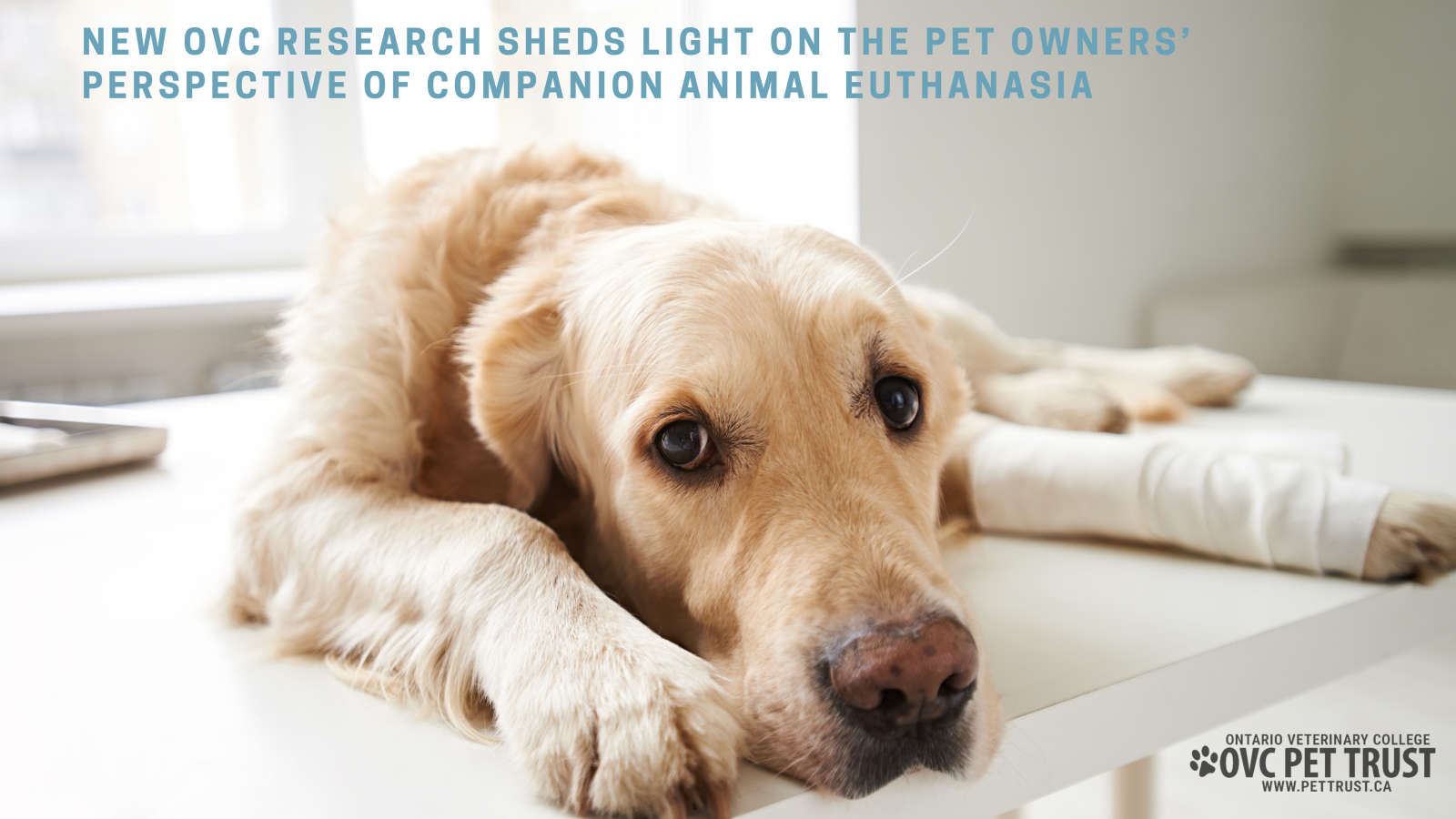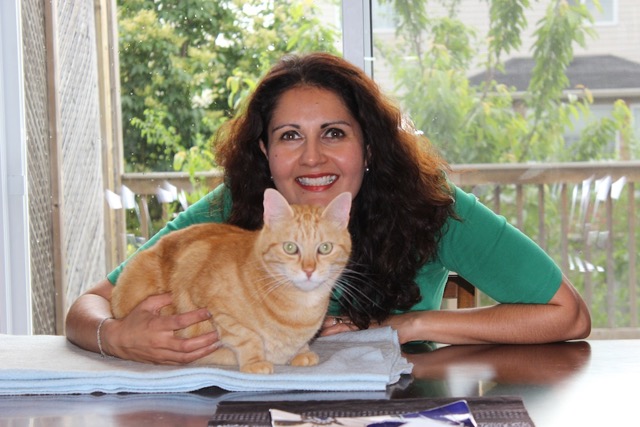
Most pet owners would agree: saying goodbye to a beloved companion is one of the most heartbreaking and emotional moments they may experience and navigate over the lifetime of their animal. What if there was a way to help with the possible grief that comes with saying goodbye?
A new study published by researchers at the University of Guelph’s Ontario Veterinary College (OVC) contributes to an expanding area of research to investigate the perceptions, wishes and overall experiences of pet owners before, during and after companion animal euthanasia.
Professional motivations and personal interests led Alisha Matte, who completed the research as a part of her PhD alongside Associate Professor Dr. Deep Khosa, to explore the subject matter.
“The loss of a beloved pet can lead to significant feelings of grief that can be similar to the loss of a human loved one. Unlike human loss though, grieving the loss of a pet can lack social supports and acknowledgement. This may place pet owners at a greater risk for more complicated forms of grief,” says Matte. “We know that the process of care delivery provided by veterinary professionals has an impact on pet owner experience,” Matte adds, who dedicated her thesis to her dog Brody, the Shih Tzu she lost while attending the University of Guelph.
While Matte and Khosa recognize that veterinary teams want to support both the medical care of animals and emotional well-being of pet owners and will always do the best job they can, research shows that veterinary professionals report sometimes feeling unsure of how best to support owners.
That’s where the team’s research comes into play: “We need a better understanding of pet owners’ perspectives, which in turn can assist in helping veterinary teams who provide support, make decisions and plan for companion animal euthanasia” Khosa says. Khosa’s research interests also include multiple aspects of primary healthcare practice and veterinary education.
With the help of social media, Matte collected survey responses from more than 2,300 pet owners around the world, with the majority of participants located in Canada and the United States.
What were the research findings?

- Participants overall reported high levels of satisfaction with their euthanasia experience.
- Pet owners’ overall satisfaction was found to be related to how veterinary professionals handled the administrative aspects (i.e. payment and paperwork), emotional support, follow-up care and care for their pet’s remains.
- Pet owners’ resulting grief was found to be related to the number of euthanasia instances they had previously experienced, the type of human-animal bond (pet vs. companion vs. family member), if the euthanasia was unexpected and their satisfaction with the emotional support they received from their veterinary professionals.
- Pet owners wanted to able to contact their veterinarian with any concerns or questions about their pets’ health leading up to euthanasia; to have the option for the euthanasia to be performed in their home; and to have access to after-hour services for euthanasia.
In photo: Alisha Matte, PhD.
Why do the results matter?
- Findings may assist in allowing veterinary professionals to enhance their ability to support pet owners (e.g. use findings to guide the development of standard operating procedures for a veterinary practice) which can, in turn, lead to improved satisfaction and a greater perceived ability to cope with pet loss among pet owners.
- Findings contribute to existing research and shed light on the most important practices associated with companion animal euthanasia, from the pet owners’ perspective.

In photo (above): Dr. Deep Khosa.
This research was supported by OVC Pet Trust.
Read more in spring / summer issue of Best Friends Magazine.

